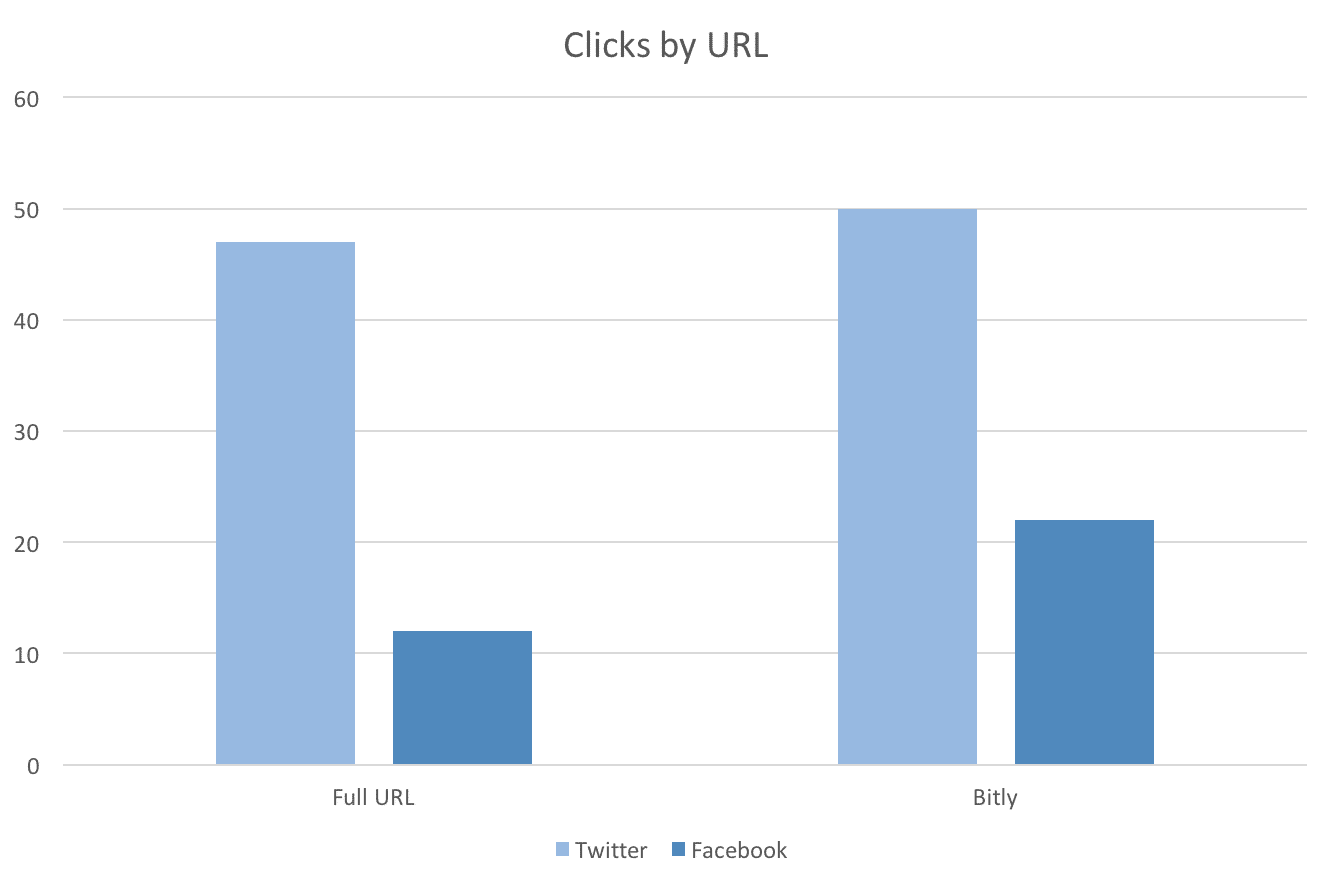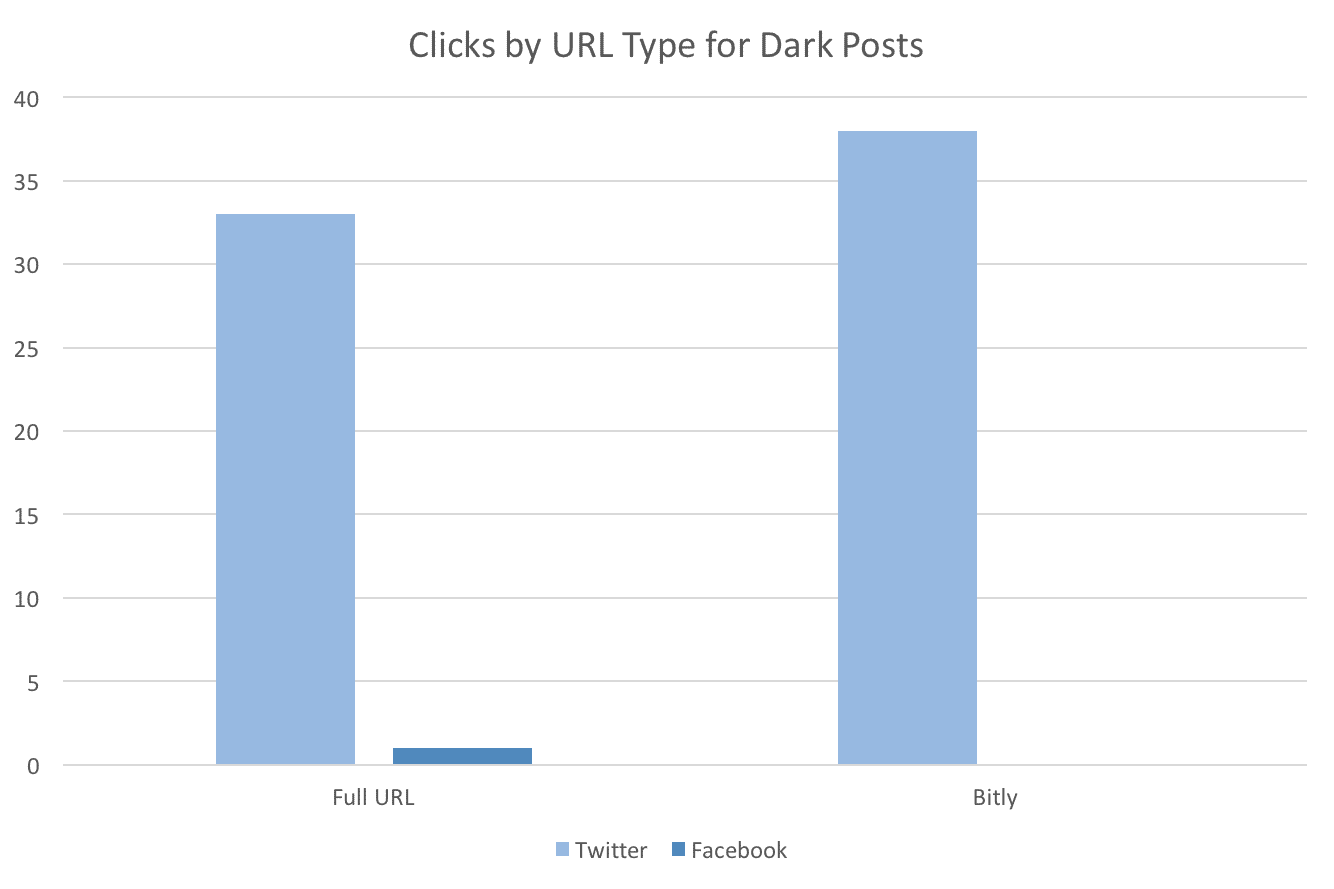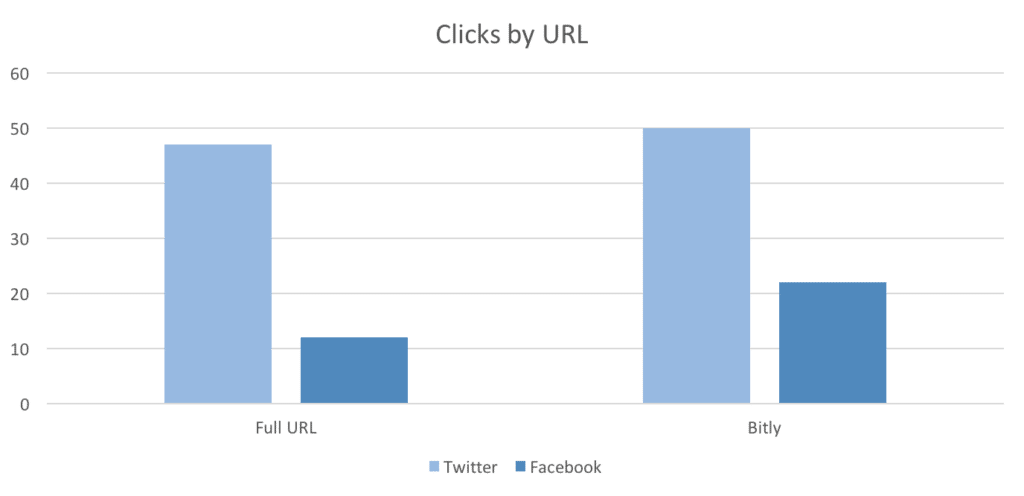One of our clients is a network security company, so with stories like this from Krebs on Security or this from PC Magazine making headlines, we had to ask ourselves: are IT pros really skeptical about clicking shortened links, and does using a link shortener affect our click rate?
For several weeks, we conducted an A/B test on one of our client’s social channels using the full URL and Bitly URL to determine whether Bitly impacts the click rate on our video content, mainly on Twitter. Why did we focus on Twitter? LinkedIn automatically shortens the URL (e.g. https://lnkd.in/eZRqANF) so using the full URL is not an option on this platform (and after doing some initial testing, we found that it makes zero difference). For Facebook, we embed the video directly on this platform and have found that folks rarely click on the URL to watch the video, but instead watch it directly on Facebook.
So what were the results?
We placed eight video posts on Facebook and Twitter (four using the full URL and four using the Bitly URL) and found:

- The full URL garnered 47 clicks on Twitter and 12 clicks on Facebook
- The Bitly URL garnered 50 clicks on Twitter and 22 clicks on Facebook
To give an even playing field and to make sure that the actual content or subject matter in the video wasn’t the main factor on whether people would click on the URL, we also did some dark posts so each post had the same exact content, with the only difference being the Bitly URL or the full URL. Here are the results for the dark posts:

- Full URL: Twitter 33 clicks; Facebook 1 click
- Bitly URL: Twitter 38 clicks; Facebook 0 clicks
Bottom Line?
Bitly did not negatively impact the click rate on our content and since we gain valuable insight using Bit/ly for tracking and reporting, we think we’ll stick with it.

